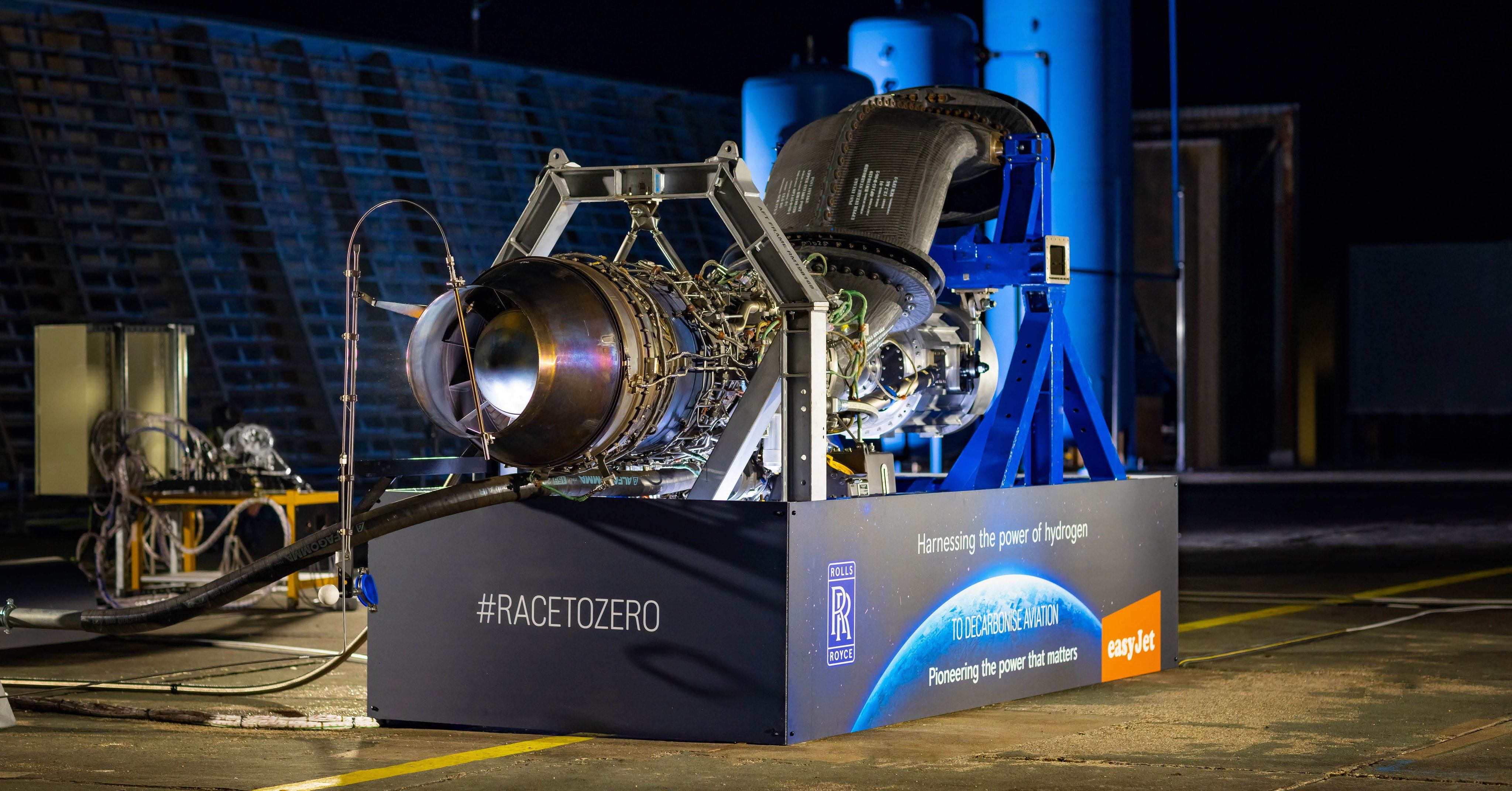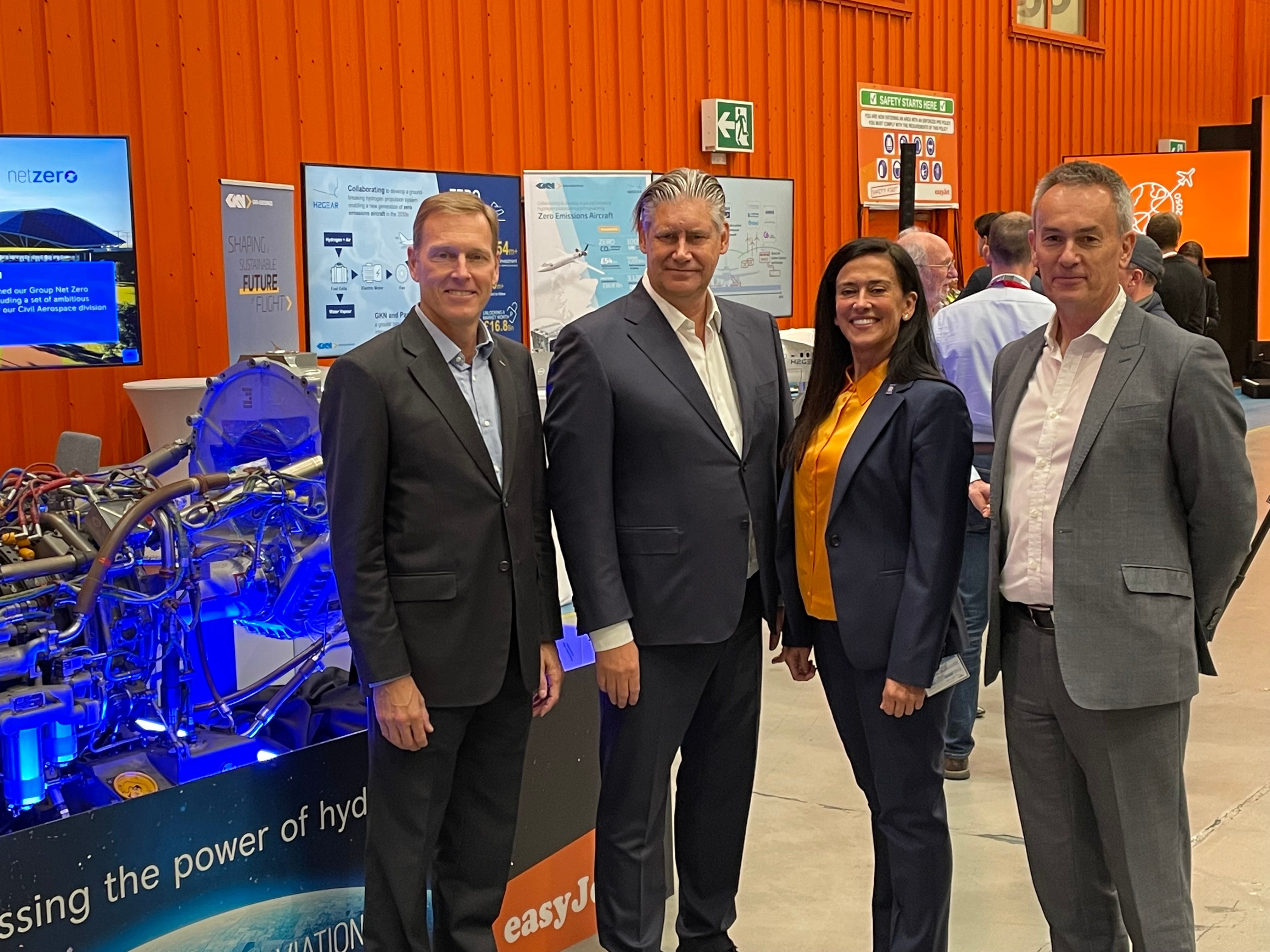From manufacturers to airlines, stakeholders across the commercial air travel industry have shown their commitment to hydrogen-powered aircraft amid their decarbonization goals. Two powerhouses that are firmly supporting this field are easyJet and Rolls-Royce, who have been working closely together to advance hydrogen aviation technology.
Partnering up
Earlier this week, easyJet outlined its ambitious net zero roadmap at a conference in Luton, England, attended by Simple Flying. While a plethora of initiatives was discussed, a standout feature was the deployment of hydrogen aircraft.
easyJet notes that hydrogen has no operational CO2 emissions. Thus, the British carrier has collaborated with several other firms, including Rolls-Royce, to accelerate the deployment of the element in the commercial aviation industry.
Notably, the airline was quickly on board to back Airbus' ZEROe program amid the manufacturer’s mission to enter the first zero emission commercial aircraft into service by 2035 via hydrogen technology. Moreover, easyJet entered into a multi-million-pound hydrogen engine and carbon removal technology partnership with Rolls-Royce.
The hydrogen combustion engine project is part of the H2ZERO initiative that would see the companies perform engine tests. Two primary ground tests have been planned. One on a Rolls-Royce AE 2100 turboprop engine before 2022 comes to a close, and another on a Rolls-Royce Pearl 15 jet engine in the future.
While looking at the sister unit of the AE 2100 set to be tested, Rolls-Royce staff informed Simple Flying that the hydrogen involved in the test program is coming from Scotland. The United Kingdom has been making waves in the hydrogen realm recently, with the likes of ZeroAvia and magniX advancing well with their facilities across the country.
Want to know more about sustainability in aviation?
A word from the firm
Speaking at Monday’s conference, Rolls-Royce Chief Technology Officer Grazia Vittadini took the opportunity to update the status of the program. Impressively, Rolls-Royce is conducting its final preparations for the initial AE 2100 engine ground test. Yet, the company is already looking ahead to moving to a flight test phase. The primary goal is for hydrogen to power small and medium-sized aircraft by the middle of the 2030s.
Vittadini shared the following about her company’s progress in the hydrogen space:
“I’m really delighted to say how fast we are progressing towards the very first hydrogen combustion ground test. The engine is there and hydrogen has been delivered. This is certainly just the first step. Rolls-Royce engines are made to fly, and our ambition is to take this technology to the air and indeed power a whole range of aircraft.“easyJet and Rolls-Royce are absolutely on the same page on this. We both signed the UN Race to Zero campaign, and we're absolutely determined and excited to join that race next to easyJet as they sprint to really decarbonizing the skies and having a net zero future.”
Get the latest aviation news straight to your inbox: Sign up for our newsletters today.
Central to the cause
Vittadini highlighted that there are numerous carbon-cutting solutions being worked on across the industry, including the cultivation of sustainable aviation fuel (SAF). She recognizes the need to continue investigating and developing these domains concurrently and coherently. However, among all of them, she feels that hydrogen is showing significant potential. As a result, Rolls-Royce is committed to exploring and exploiting these prospects.
With easyJet no longer relying on carbon offsetting schemes to reduce its footprint from December, serious movements in alternative fuels will go a long way toward a sustainable aviation ecosystem. After all, the airline targets net-zero operations by 2050. With Rolls-Royce gaining tremendous ground in electric and hydrogen solutions, it is undoubtedly an excellent partner to have on board.
What are your thoughts about the potential to be had when it comes to hydrogen-backed air travel? What do you make of the overall initiatives in place regarding sustainable aviation? Let us know what you think in the comment section.


